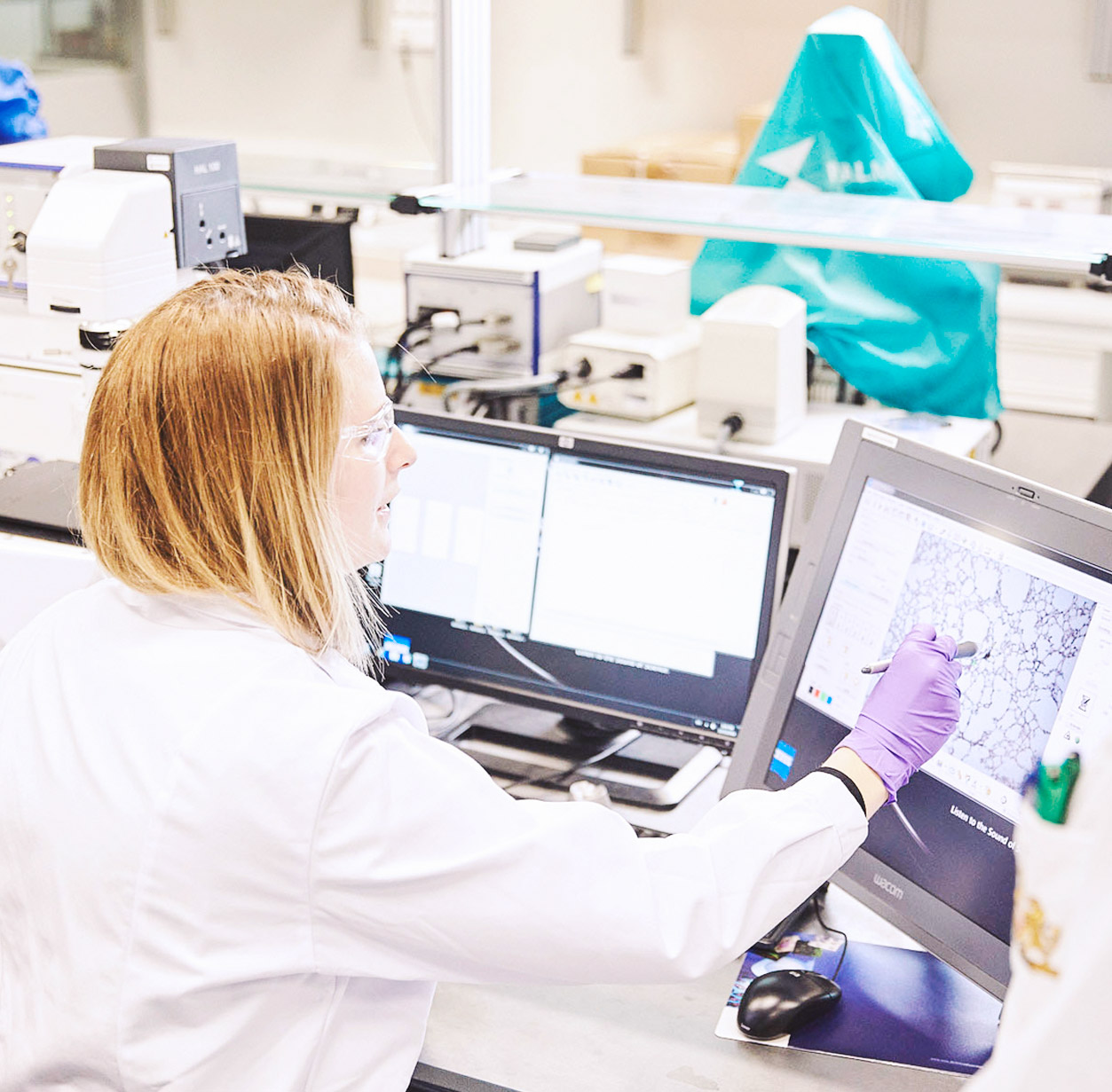

PMI’s commitment to a smoke-free future
According to the World Health Organization there are currently around a billion smokers – nearly an eighth of the world's population. Though rates are gradually declining, around one in four people in Switzerland still smoke today. Naturally, their best option is to quit altogether, but experience shows us that most of them will continue to smoke unless a better alternative can be found. And that’s where Philip Morris International (PMI) comes in.

The company is committed to working towards a reality without cigarettes. A future without cigarettes would benefit not only smokers, but also health systems around the globe. As a giant of the tobacco industry, PMI may on the surface seem an unlikely ambassador for such a future, but 99 per cent of its total research and development budget and 76 per cent of its global commercial expenditure is now dedicated to smoke-free alternatives to cigarettes, with eight factories now dedicated to their manufacture.
This disruption to the company’s traditional model also makes sound financial sense and, just over five years after smoke-free products were introduced, they account for almost a quarter of PMI’s business revenue.
To effect real change in society, however, a joint effort between companies and policymakers, NGOs and regulators will be crucial, along with the recognition that smoke-free alternatives can complement health policies that help smokers to quit.
PMI's path to a smoke-free future
A rigorously scientific approach, informed by independent sources, is crucial if PMI is to challenge preconceived ideas that inevitably surround one of the world's largest and most successful tobacco companies. To that end, since 2008 the company has ploughed more than US$8.1 billion into research and development of smoke-free products.

One by one, PMI is converting conventional cigarette factories into smoke-free manufacturing facilities. In Switzerland, for example, it has invested 30 million Swiss francs in its factory in Neuchâtel in order to replace some cigarette production lines with manufacturing facilities for HEETS (heated tobacco units) to be used with PMI’s ‘IQOS’ smoke-free device.
The role of Switzerland in the transformation has been significant. “The entire workforce at the operational headquarters in Lausanne as well as at the Cube research center in Neuchâtel responded to our decision to move towards a “smoke-free future” with an admirable spirit of optimism,” said Dominique Leroux, managing director for Philip Morris Switzerland Sàrl (PM Switzerland). “Hundreds of employees who had been producing traditional cigarettes for years, and in some cases decades, were extremely positive about their retraining. We immediately felt that the fundamental strategic realignment was welcomed with open arms within the group and obviously reflected a need and the spirit of the times.”
As a measure of its commitment to a smoke-free future, since May 2018 PM Switzerland has voluntarily stopped conventional cigarette advertising in Swiss newspapers and on billboards, at cinemas and festivals. All its marketing material outside the point of sale in Switzerland is now dedicated to providing adult smokers with information about smoke-free products, and it no longer sells cigarettes on its online platforms.
Alternatives to smoking
The most widely used alternatives to smoking fall into two general categories: heated tobacco products, and e-cigarettes.
The first type comprises devices that operate within a specific temperature range, heating the tobacco to the point at which it delivers nicotine-containing tobacco vapour but lower levels of harmful chemicals than it would with combustion.
E-cigarettes heat a liquid that often contains nicotine to produce an aerosol – commonly called a ‘vapour’, hence the term ‘vaping’. Neither these nor heated tobacco products involve combustion and therefore neither creates ash or smoke.
We know that smoking is harmful and that nicotine is addictive, but there is an important difference between the inhalation of smoke and the inhalation of an aerosol from a non-combustible product. Contrary to popular belief, it is not nicotine but the harmful chemicals released in the burning process that are the primary cause of smoking-related diseases.

PMI’s laboratory studies compared the tobacco vapour generated by its leading heated tobacco product to cigarette smoke and found levels of harmful and potentially harmful chemicals to be, on average, 95 per cent lower. These findings have been mirrored by those of government authorities such as the Federal Institute for Risk Assessment (BfR) in Germany.
Analysis published by government bodies have found smoke-free products such as e-cigarettes to be a much better option for smokers who do not quit, as these products are deemed to be potentially a less harmful alternative to traditional cigarettes.
PMI has made clear that its products are aimed solely at adult smokers who would otherwise continue to smoke, and the company is careful to emphasise that the best way smokers can protect their health is to quit smoking completely. The aim is to build a portfolio of products that have the potential to reduce risk for those who do not quit.
PM Switzerland has always set itself ambitious goals when it comes to the number of national IQOS-users. Early 2022, more than a 150,000 adult smokers were using the device in Switzerland. Some 72 per cent of these have since stopped cigarettes and switched completely to IQOS.
Challenges of legislation
For some time now, the position of the company has been “If you don’t smoke, don’t start. If you smoke, quit. If you don’t quit, change.” While this might seem a contradictory ethos, the development of these new smoke-free products allows PMI to follow a new path, where taking responsibility and reducing the negative impact of smoking becomes a critical component of its strategy for the future.
The challenge is to provide men and women who do not quit smoking with the information that will help them to make informed choices, especially where legislation restricts access to such information.

Regarding PMI’s heated tobacco product, the US Food and Drug Administration recently recognized the public health benefit inherent in this kind of marketing, and in July 2020, it authorised the distribution of such material on the American market, finding that such information “…could help addicted adult smokers transition away from combusted cigarettes and reduce their exposure to harmful chemicals, but only if they completely switch.”
While PMI is doing everything it can to transform its business and provide adult smokers with better alternatives, it needs the support of legislators and governments to implement a regulatory framework that allows it to fully inform the public about products scientifically proven to be a better choice for them.
“Innovative products and solutions do nothing if people don’t know about them,” says André Calantzopoulos, former CEO and Executive Chairman of the Philip Morris board. “We are ready and willing to talk with people across all sectors and all points of view, including those who disagree with us.”
“Those who are suspicious of our intentions, who block progress without taking time to understand the science and the size of the public health opportunity, do smokers a great disservice. As we drive toward a future that is smoke-free, these detractors have become disablers of public health solutions. They are blocking change, and many smokers are being denied these alternatives.”
Think Again
When it comes to global crises such as climate change, gender inequality, hunger or the Covid-19 pandemic, it’s clear that partnerships must be formed between private and public bodies for real change to come about, and PMI believes that the drive to bring about the end of conventional cigarettes should be treated in the same way.
The company’s goal is to encourage stakeholders at every level – from legislators to the general public – to 'Think Again', and understand the role a company in PMI’s position can play in a brighter future.
Learn more about PMI’s smoke-free vision and the science driving it





